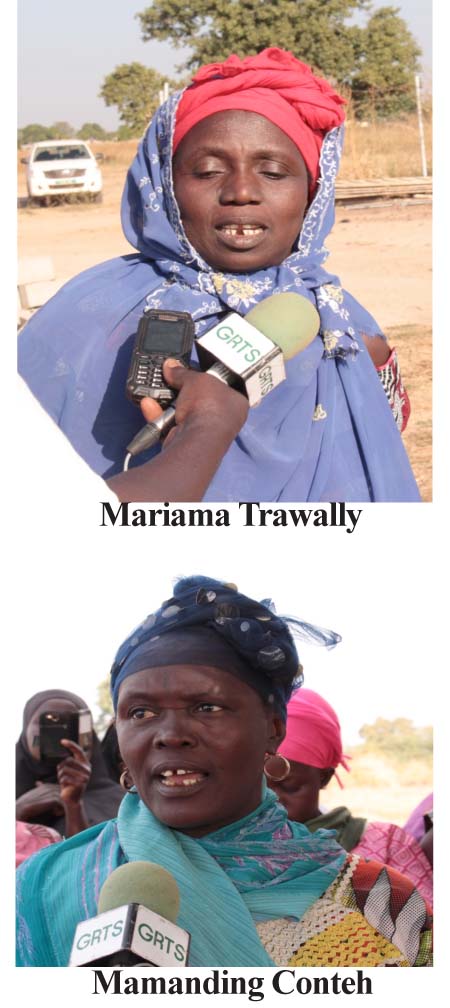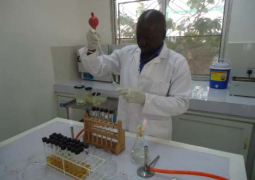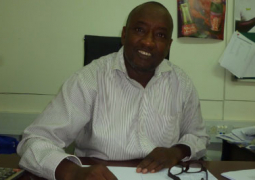
Speaking to journalists at the community’s 5-hectare garden recently, the alkalo said the ‘‘intervention is transforming the well-being’’ of the people within the community and beyond.
He expressed the community’s appreciation of the assistance, as well as their commitment to contribute towards the attainment of the project`s objectives.
Adama Marikong, vice president of the women’s group, praised God for the project.
She added that it has helped improved food and nutrition security, as well as increased individuals and the her group’s income.
‘‘We have D167,000 in our bank account and we also use proceeds from the sale of our vegetables to pay for basic household needs,’’ she announced.
Mariama Trawally, another female farmer in the village, said the project has transformed her life.
Thanks to the support given to them by the project, she has access to good nutrition as she has been able to consume plenty of fresh vegetables.
“I know I wouldn`t be anaemic as I eat enough vegetables,” she said, adding that she earned more than D12,000 in 2015 from the garden and that part of the proceeds was used to buy a `good bed`, clothes and other household needs.
Kawsu Drammeh, a male farmer, also said they have been able to consume their own vegetables for more than nine months.
He said:“Since they started production at this garden, my wife provides most of the ingredients we eat.We have been consuming green leaves throughout the dry season, and since the start of the rainy season we have been consuming dried cabbage leaves.My wife preserved it and we only exhausted the stock on 16th December 2015’’.
Mamanding Conteh, president of Konteh Women’s Group, said their vegetable garden has helped reduced hunger, malnutrition and poverty in their community.
The intervention has raised their standard of living and well-being. “We still have some onions produced during the last season being consumed by households in this village,” she said.
The project has also helped the group save at least D40,000 in their bank account.
“We always use vegetables from this garden to cook for our children at the village lower basic school,” she added.
Haddy Mbaye, another female farmer, and Kebba Suso, a male farmer, both made similar remarks, praising the EU, FAO and government for the support.
Mr Suso said the project has strengthened their producer’s group, as well as youths’ participation in development work in the community.
He revealed that he has not bought rice for household consumption for three months, as his wife was providing it from the income she earned from the garden.
‘‘We are praying for the sponsors and their partners, especially FAO as they have transformed our lives.’’
Dilating on sustainability mechanisms in place for the MDG1c project, Kebba Sarr, field coordinator of the project in NBR, said besides the series of training activities on governance, group management, marketing, climate-smart sustainable farming methods, life fencing has also been introduced.
The lime trees planted will further increase income and boost farmers’ nutrition, he said, and that the beneficiary farmer producer groups have all opened bank accounts, and that is helpful in strengthening the ‘revolving schemes’.



